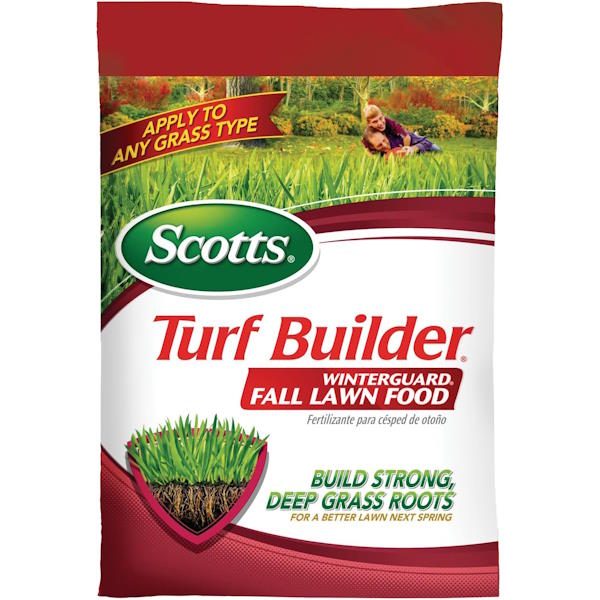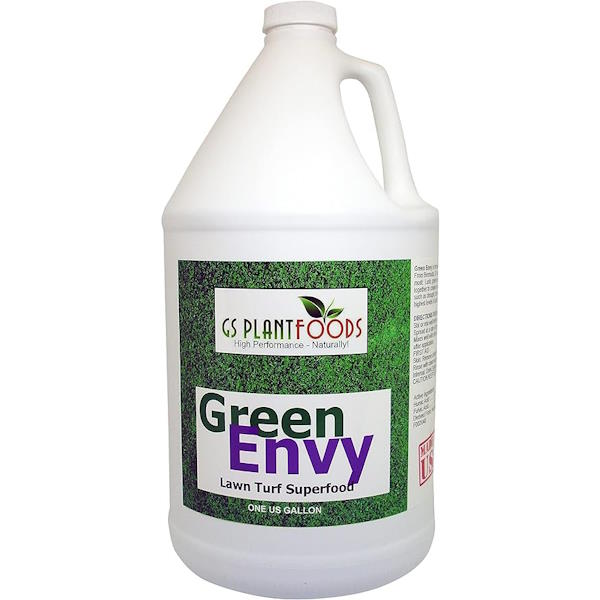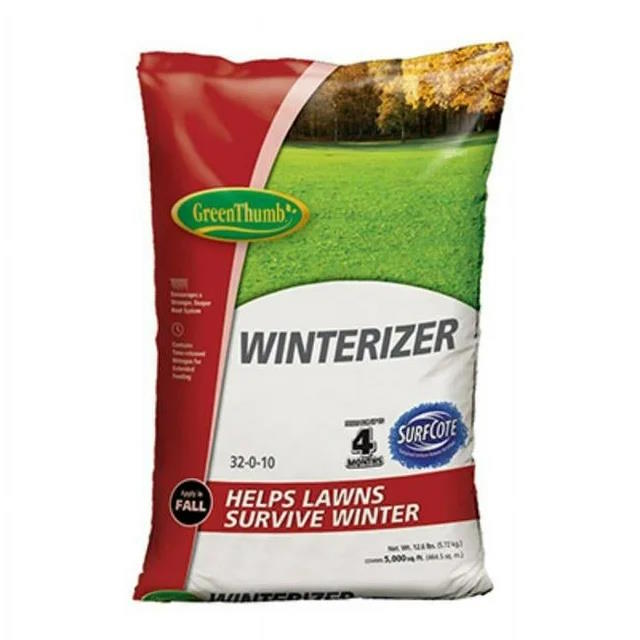Should you be using winter lawn fertilizers? Expert advice on when - and when not - to apply a lawn nutrient boost
Feeding your lawn for the cold weather will help it throughout winter and when it starts growing again in the spring

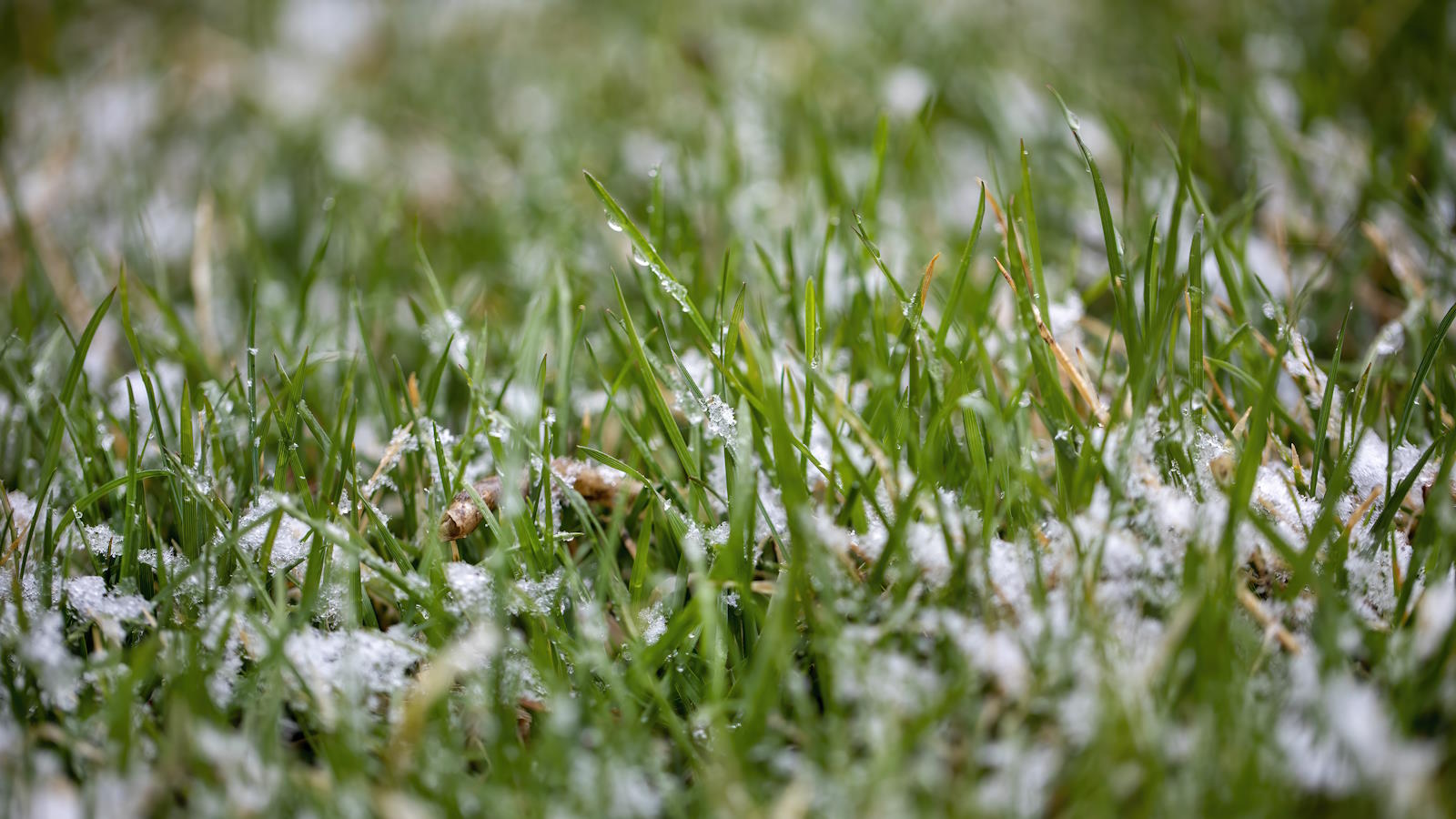
Design expertise in your inbox – from inspiring decorating ideas and beautiful celebrity homes to practical gardening advice and shopping round-ups.
You are now subscribed
Your newsletter sign-up was successful
Want to add more newsletters?

Twice a week
Homes&Gardens
The ultimate interior design resource from the world's leading experts - discover inspiring decorating ideas, color scheming know-how, garden inspiration and shopping expertise.

Once a week
In The Loop from Next In Design
Members of the Next in Design Circle will receive In the Loop, our weekly email filled with trade news, names to know and spotlight moments. Together we’re building a brighter design future.

Twice a week
Cucina
Whether you’re passionate about hosting exquisite dinners, experimenting with culinary trends, or perfecting your kitchen's design with timeless elegance and innovative functionality, this newsletter is here to inspire
Looking after a lawn each year does not necessarily end with the last mow each fall. There is one more task to do that can help your lawn survive the worst of the winter weather and ensure it grows strongly again in spring - and that is to apply fertilizer to winterize your lawn.
An application of feed prior to the frosts arriving can be an integral part of any winter lawn care regime. Such products are specially formulated to help prepare the lawn for the frosts and snow that may arrive, and they are applied after the last mow of the season.
So, if you are trying to decide whether using winter lawn fertilizer is vital for your backyard, we hear from lawn care experts about the benefits such feeds bring and when you should be using them - together with some recommendations for what products to use.
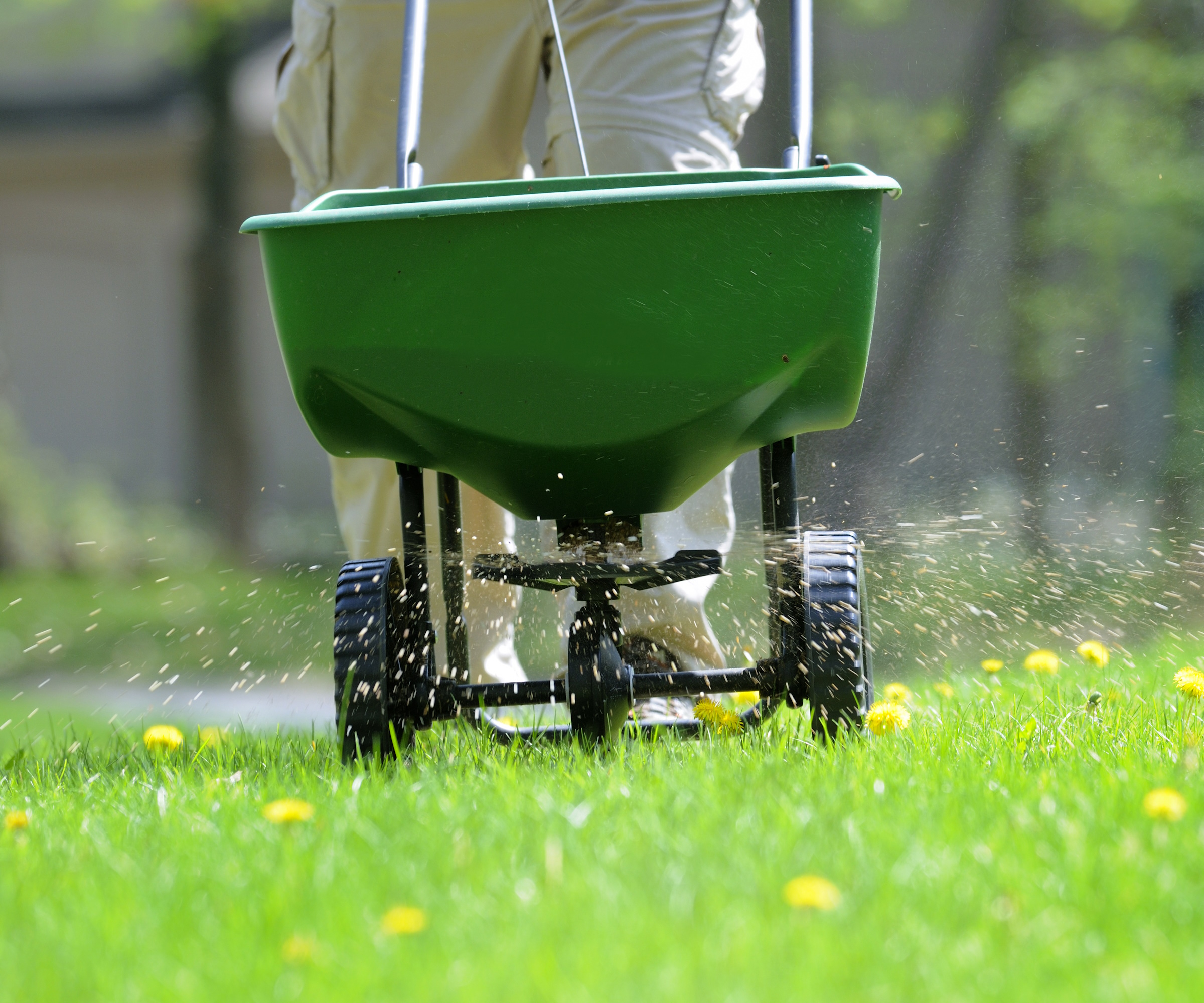
Fertilizing a lawn is a task commonly done in spring and fall
Should I fertilize my lawn in the winter?
Applying a fertilizer ahead of the colder months can definitely benefit the long-term health of your grass. It is a preventative measure worth adding into your fall lawn care to-do list.
The nutrient make-up of lawn fertilizers designed for use later in the year helps prepare the grass for the cold and means it will grow strong when temperatures increase and you start thinking about mowing the lawn in spring.
‘Winterizing fertilizer contains higher levels of nitrogen and potassium to help your lawn store more energy and nutrients throughout the winter,’ explains Quinten O’Dea, a professional landscaper. ‘This will allow your lawn to come alive stronger in the spring and be a more vibrant green.’

Quinten O’Dea is a professional landscaper with over 13 years of experience completing quality projects. His company Q&A Landscaping has been planting flowers, shrubs and trees for over a decade now throughout the Pittsburgh area
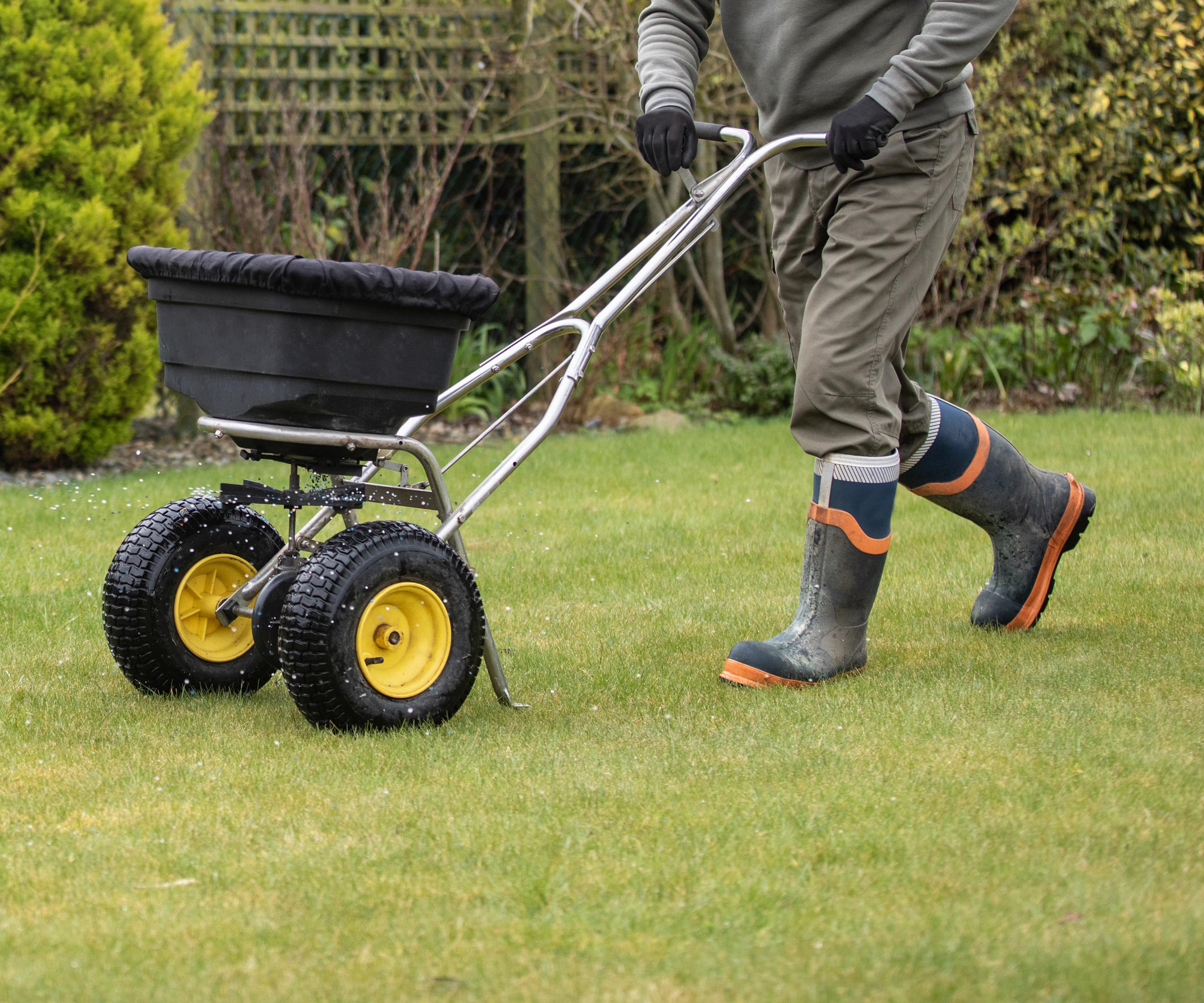
Granular lawn fertilizer can be applied with a spreader, or by hand
When to apply winter lawn fertilizers
The addition of a winter lawn fertilizer is often the last step in an annual maintenance regime. You may already have a fall gardening checklist with important lawn care tasks like aerating the grass, giving a lawn its final mow before winter, and winterizing the lawn mower - but feeding is one additional final job to add to that list.
Design expertise in your inbox – from inspiring decorating ideas and beautiful celebrity homes to practical gardening advice and shopping round-ups.
The exact timing of when to feed the lawn will depend on your climate and US hardiness zone.
Ryan Farley, CEO of LawnStarter, admits that the term winter fertilizer can ‘be a little misleading’ as they are products designed to help the lawn ahead of winter and protect from the incoming cold, rather than being applied during the winter months.
He adds: ‘The purpose of this type of fertilizer is to winterize your lawn, meaning you apply in late fall before the ground has frozen in order to supply your lawn with a steady delivery of nutrients while it's dormant.’
The ideal time to apply a winter fertilizer is going to be a few weeks before the onset of the first frost for your area. This can range from the start of October in colder climates through to December - so keep a close eye on the forecast for your area.
If you apply the product too late, then there may not be enough time for the nutrients contained in the winter feed to benefit the lawn before the frost and snow hits.

Ryan Farley is the CEO of LawnStarter, a lawn care service founded in 2013 and based in Austin, Texas.
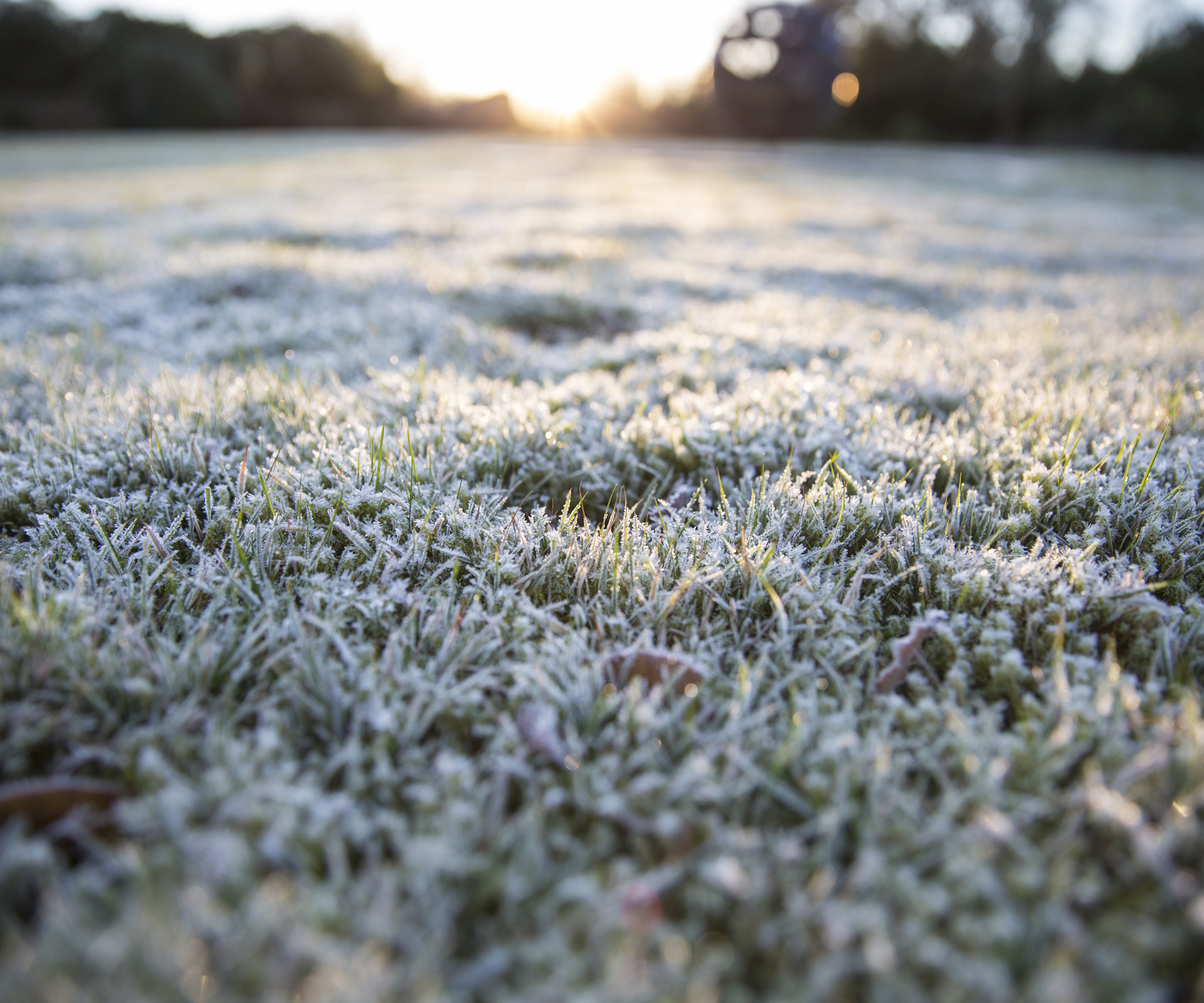
You want to fertilize a lawn for winter ahead of the frosts
How to choose the best winter fertilizer for lawns
It is important to pick fertilizers that are specifically designed and labeled to use on lawns late in the season. A feed intended for winterizing a lawn tends to have higher levels of nitrogen and potassium - these are two of the main NPK nutrients seen as plant fertilizer numbers on product packaging.
It is best to go for slow-release granular fertilizers to spread in late fall or early winter as they will provide nutrients to the grass over an extended period, to give strength throughout winter and into spring.
When it comes to professional recommendations, Jeremy Yamaguchi, the CEO of Lawn Love, says: ‘My go-to brand is GS Plant Foods. Their High-Quality formula is a good fit for most grass types.’
Meanwhile, Gene Caballero, Co-Founder of GreenPal, says ‘Products like Scotts Turf Builder WinterGuard Fall Lawn Food are popular for their balanced nutrient content and effectiveness in strengthening grass roots.
‘Another excellent option is Pennington UltraGreen Winterizer Lawn Fertilizer, known for promoting deep root development and enhanced greening in spring.’
FAQs
Is it OK to cut grass in winter?
If you live in a warmer climate, then your grass may not stop growing and go dormant in winter due to the mild temperatures. If the grass is continuing to grow, then it will benefit from being mowed to keep it looking neat - however the frequency of how often you mow the lawn should drop from when the grass was growing faster in summer.
If your lawn does stop growing and goes dormant for winter, then you can stop mowing your lawn for winter and store the mower until the grass starts growing again in spring.
What happens if you cut grass too short in winter?
Cutting the grass short before winter is not recommended and doing so can be a winter lawn care mistake that can cause potential harm to the lawn over the colder months. Cutting it too short ahead of winter can leave the roots more exposed to the cold and weaken the grass, whereas raising the height for the last cuts means that longer grass can insulate the roots from the cold.
If you do live in a climate where you need to continue to mow over winter, then mow at a higher setting than you did in summer or fall.
Frost can cause major issues for grass and experts recommend that you never walk on frozen grass, though snow does not always mean lots of damage to a lawn.
Snow can actually insulate a lawn and protect it from plummeting temperatures, however it can lead to the development of a fungal disease known as snow mold - so try to watch for this if possible.

Drew has worked as a writer since 2008 and was also a professional gardener for many years. As a trained horticulturist, he worked in prestigious historic gardens, including Hanbury Hall and the world-famous Hidcote Manor Garden. He also spent time as a specialist kitchen gardener at Soho Farmhouse and Netherby Hall, where he grew vegetables, fruit, herbs, and cut flowers for restaurants. Drew has written for numerous print and online publications and is an allotment holder and garden blogger. He is shortlisted for the Digital Gardening Writer of the Year at the 2025 Garden Media Guild Awards.
